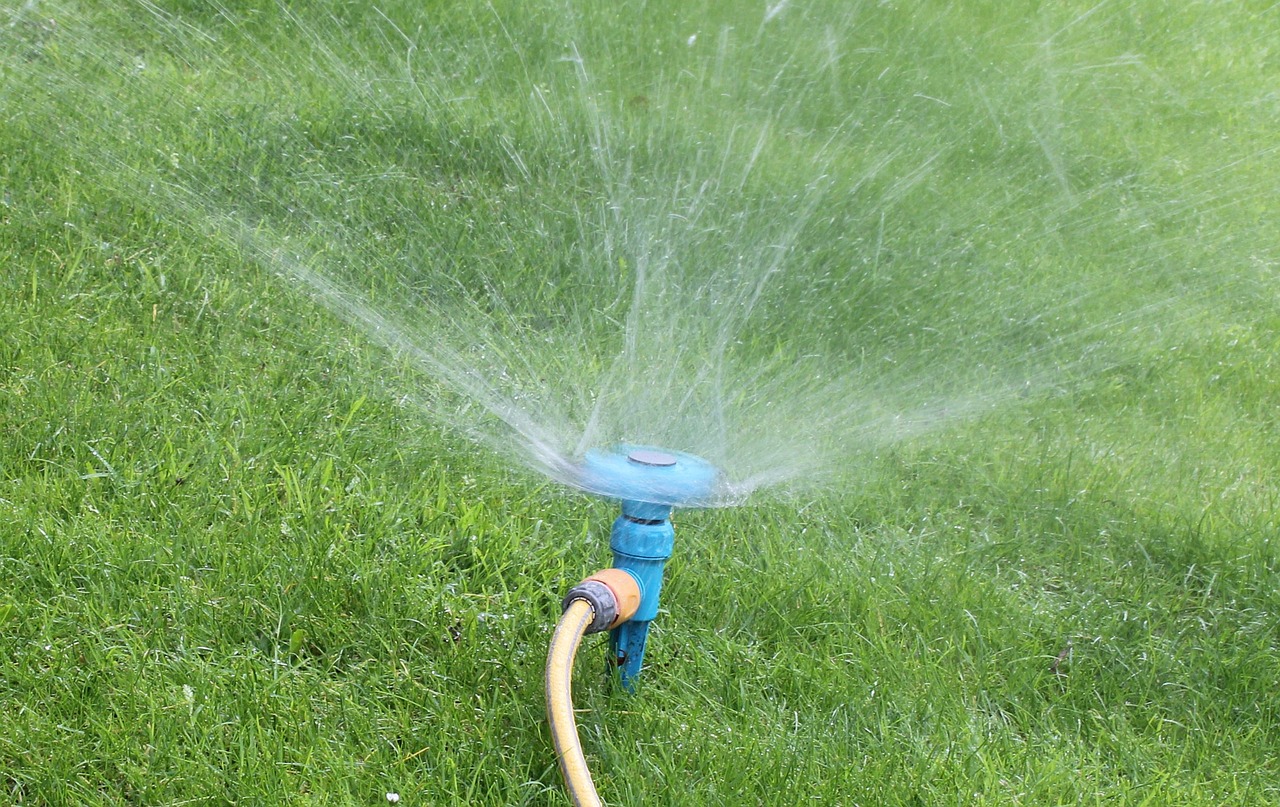Last Updated on
Often the media likes to portray irrigation as being terrible for the environment, promoting excessive agriculture, and is assumed to be hurting the environment. These messages that support irrigation are directed towards excessive irrigation and unhealthy farming practices. They support the idea that sprinkler systems are environmentally detrimental but are supported by very little science.
It is true that poor irrigation can promote excessive nutrient loss and waste of water, but proper irrigation can help the environment in many ways. Despite retaining nitrogen in groundwater and helping to improve the soil quality, proper irrigation can also help to support the flow of rivers and work against erosion. There are many reasons why sprinklers can be good for the environment.
Modern sprinkler systems save water
When irrigation systems were first invented, they were not as accurate as they are today. Now, with modern sprinkler systems using a variety of tools such as moisture sensors, timers, and water gauges, your lawn only receives the amount of water that it needs. These systems are specifically designed to save water compared to manual watering. This ends up helping the environment, and your bank account.
Irrigation helps to improve the water holding capacity of soil
In a 14 year-long trial performed by the FAR Chertsey Research Site, it was found that soil carbon increased in irrigated treatments versus those in dryland. Eventually, it was found that this resulted in a 3% increase in the amount of water that the soil was able to hold, eventually saving more water in the long term.
Produce more oxygen
Healthy and properly watered lawns can absorb carbon dioxide, ozone, sulfur dioxide, and other greenhouse gases. At the same time, a 50’ by 50’ lawn area can produce enough oxygen for a family of four. Not only does this create more oxygen, but this helps to combat global warming and reverses environmental damage.
Support carbon intake
When you have a properly watered and fertilized lawn, the lawn becomes a carbon intake. This means the lawn will take in and store carbon that would generally be polluting the air. This also requires your lawn to need around half the amount of synthetic nitrogen fertilizer needed, saving you money in the process.
Protect from erosion and runoff
Erosion and runoff are two negative environmental impacts that a proper sprinkler system can help to prevent. When turf is properly irrigated, the complex root system ends up aiding in the prevention of both erosion and runoff.
Improve soil quality
Improving soil quality through irrigation is very common. This is done so that there is higher water holding capacity, which results in less drainage and eventually nitrogen leaching.
Irrigation can help reduce nutrient leaching
Generally, extra nitrogen is applied to crops or lawns because the soil naturally loses nitrogen content. This can happen through rainfall, or at the end of a growing season. Irrigation is a tool that can help to avoid nitrogen loss. This can be done by leaching. Irrigation ensures that plants or grass are actively growing. This makes it simple to know exactly how much nutrients the plant growing requires and how much nutrients to apply afterward.
Cooling effect
In Denver, the summers can get hot and the cost of electricity is high. An average size lawn can have a cooling effect on a home that can be greater than an average air conditioner! This results in a lower amount of electricity usage, which is not only at a lower cost to you but is also great for the environment!
Trap airborne particles
Airborne particles can be potentially damaging to the environment and humans. They can aid in making people sick and ruining our atmosphere. Properly irrigated lawns can be very effective at trapping airborne particles which is good for not only the environment but also human health as well.
Other benefits of sprinklers
- Lawns that are well cared for can increase a home’s property value, and those with an in-ground sprinkler system have an average of a 15% value increase.
- Save time by not needing to drag a hose around your property to water it. Instead, your sprinkler system will automatically water everywhere at the time it needs to be watered.
- Use exactly the right amount of water to lower your overall water bill.
- Good sprinkler systems will make your lawn look amazing and are often installed completely out of view.
How to promote eco-friendly sprinkler use
There are many ways in which you can help to keep using your sprinkler system in an eco-friendly manner.
Avoid the use of pesticides on the plants you are watering
Pesticides end up being taken into the atmosphere and eventually lead to the destruction of the planet. Pesticides are also bad for humans and pets as they can be toxic.
Never use your system when it rains
Not only is this bad for your lawn or plants, but it is also a huge waste of water.
Keep your setting to the minimum
Although a properly irrigated lawn is helpful to the environment, it is important to use the minimum amount that you need in terms of water usage. There is a fine line between necessary water usage and excess water usage. Set your sprinkler timer to what you find necessary.
Give your plants and lawn proper nutrients
Plants do not simply need water to survive, but also need vitamins and “food” like humans. These vitamins and food come in the form of enriched soil, adequate watering, and fertilizer. When a lawn or garden is properly nourished it will be able to properly function and provide you with the environmental benefits listed above.
If you are looking to find a sprinkler system that is good for the environment and with a commitment to quality service, call Omni Sprinkler Service and Landscaping, a Denver sprinkler company with over 20 years of experience that offers custom landscape and sprinkler plans, irrigation repairs, and modifications.


Reply